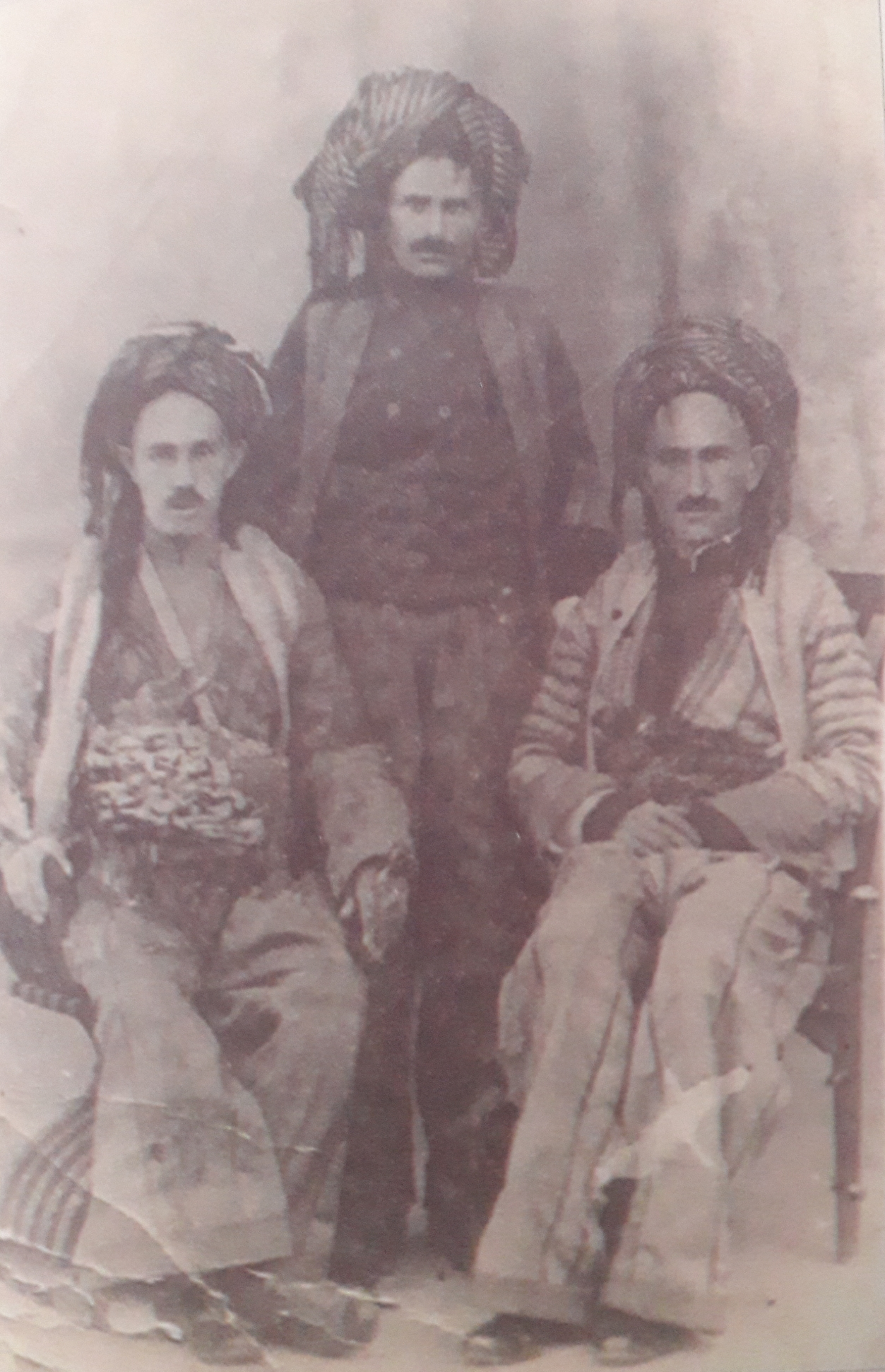Herki on:
[Wikipedia]
[Google]
[Amazon]
Herki, also spelled Harki () is a large tribe in 
Kurdistan
Kurdistan ( ku, کوردستان ,Kurdistan ; lit. "land of the Kurds") or Greater Kurdistan is a roughly defined geo-cultural territory in Western Asia wherein the Kurds form a prominent majority population and the Kurdish culture, languages ...
. The largest part of this tribe live in Iraqi Kurdistan
Iraqi Kurdistan or Southern Kurdistan ( ku, باشووری کوردستان, Başûrê Kurdistanê) refers to the Kurdish-populated part of northern Iraq. It is considered one of the four parts of "Kurdistan" in Western Asia, which also inc ...
and a significant number live in Iranian Kurdistan
Iranian Kurdistan or Eastern Kurdistan ( ku, ڕۆژھەڵاتی کوردستان, translit=Rojhilatê Kurdistanê) is an unofficial name for the parts of northwestern Iran with either a majority or sizable population of Kurds. Geographically, it ...
. They are also found in Northern Kurdistan
Turkish Kurdistan or Northern Kurdistan () refers to the southeastern part of Turkey, where Kurds form the predominant ethnic group. The Kurdish Institute of Paris estimates that there are 20 million Kurds living in Turkey, the majority of t ...
.

Sub-tribes
The Herkis are divided in three sub-tribes: Menda, Sida and Serhati.History
According to tradition, the Herkis descend from a man named Babekr Agha. There are claims, however, like that of Dr.Zirar Siddiq Tewfiq, author of the book ''The Kurdish Tribes and Tribal Leaders in the Middle Ages,'' believes that the Harkis were present in the middle ages, possibly as 'Arji'. It seems that the Arji dwelt aroundAmadiya
Amedi or Amadiya ( ku, ئامێدی, Amêdî, ; Syriac: , Amədya), is a town in the Duhok Governorate of Kurdistan Region of Iraq. It is built on a mesa in the broader Great Zab river valley.
Etymology
According to Ali ibn al-Athir, the name ...
during the Abbasid
The Abbasid Caliphate ( or ; ar, الْخِلَافَةُ الْعَبَّاسِيَّة, ') was the third caliphate to succeed the Islamic prophet Muhammad. It was founded by a dynasty descended from Muhammad's uncle, Abbas ibn Abdul-Muttalib ...
period. An attested individual who belonged to the Arji is a man named Baw Al-Arji, who was one of Abu'l-Haija bin Abdullah Al-Hakkari's men, a contemporary of Imad al-Din Zengi
Imad al-Din Zengi ( ar, عماد الدین زنكي; – 14 September 1146), also romanized as Zangi, Zengui, Zenki, and Zanki, was a Turkmen atabeg, who ruled Mosul, Aleppo, Hama, and, later, Edessa. He was the namesake of the Zengid ...
. However, this is unlikely, considering the tribe's family tree from the founder till recent times does not go that far into the past.
, in his masterpiece , states that it was affirmed to him by a Herki leader that the Herkis are originally a branch of the Milli tribes. He also added that the Herkis are mentioned in the 19th century work Seyâhatnâme-i hudûd.
Language
The Herki dialect belongs to theKurmanji
Kurmanji ( ku, کورمانجی, lit=Kurdish, translit=Kurmancî, also termed Northern Kurdish, is the northern dialect of the Kurdish languages, spoken predominantly in southeast Turkey, northwest and northeast Iran, northern Iraq, northern Sy ...
vernacular.
Lifestyle
The Herkis lived mostly anomadic
A nomad is a member of a community without fixed habitation who regularly moves to and from the same areas. Such groups include hunter-gatherers, pastoral nomads (owning livestock), tinkers and trader nomads. In the twentieth century, the popu ...
life with their herds; however, this changed a lot after 1920 and the Treaty of Sèvres
The Treaty of Sèvres (french: Traité de Sèvres) was a 1920 treaty signed between the Allies of World War I and the Ottoman Empire. The treaty ceded large parts of Ottoman territory to France, the United Kingdom, Greece and Italy, as well ...
. The new hand-drawn borders of Iran, Iraq, Syria and Turkey hindered Kurdish
Kurdish may refer to:
*Kurds or Kurdish people
*Kurdish languages
*Kurdish alphabets
*Kurdistan, the land of the Kurdish people which includes:
**Southern Kurdistan
**Eastern Kurdistan
**Northern Kurdistan
**Western Kurdistan
See also
* Kurd (dis ...
tribes to continue their way of life.
In 1989 they counted some 20,000 people, living between Urmia
Urmia or Orumiyeh ( fa, ارومیه, Variously transliterated as ''Oroumieh'', ''Oroumiyeh'', ''Orūmīyeh'' and ''Urūmiyeh''.) is the largest city in West Azerbaijan Province of Iran and the capital of Urmia County. It is situated at an al ...
and Rawanduz, one of the largest remaining groups of pastoral herders. On their regular movement they brought salt from Iran to Iraq and carried wheat and barley back to Iran.
The Herkis were a very well-armed tribe, and were noted to be good warriors and fierce men. Some of their women would occationally be seen fighting alongside men. Herkis used to practice pillaging, for example, there was a continuous rivalry between a Herki chieftain named Tahir Agha and Muhammad Saeed Beg of Bradost, over 400 goats the earlier looted from the latter.
References